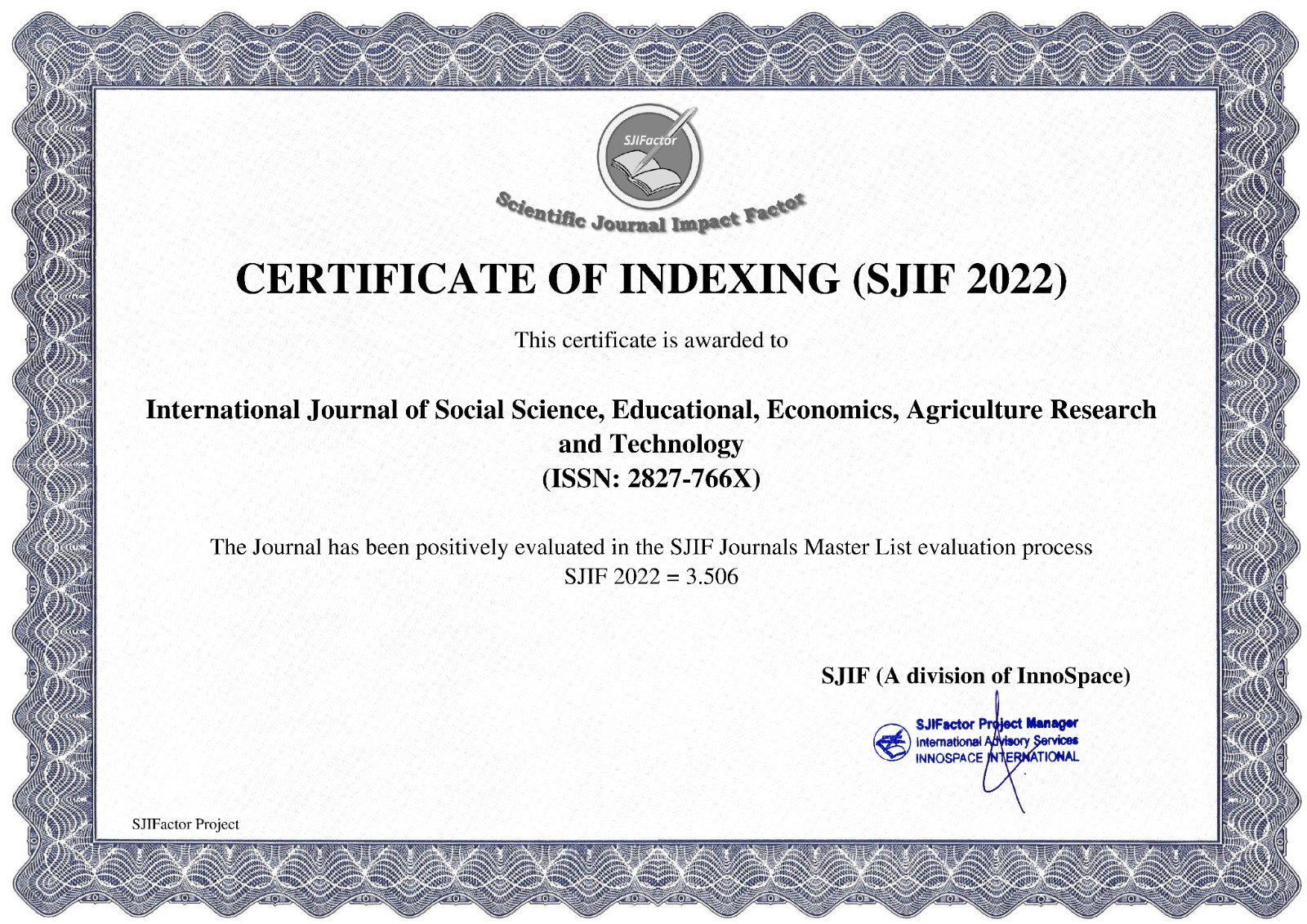THE INFLUENCE OF EMOTIONAL INTELLIGENCE, SELF EFFICACY, AND COMPETENCE ON EMPLOYEE PERFORMANCE AT PT. LENGGA HARA MEDAN
Main Article Content
Emy Yatul Hasanah
Nurmala
A Hadi Arifin
Marbawi
This research aims to analyze the influence of emotional intelligence, self-efficacy, and competence on employee performance at PT. Lengga Hara Medan. The method used in this study is a quantitative approach through multiple linear regression analysis. Data were collected using a questionnaire distributed to 83 respondents out of a total population of 500 employees, who are employees of PT. Lengga Hara Medan. The results of the study indicate that collectively (simultaneously) the independent variables, namely emotional intelligence, self-efficacy, and competence, have a significant influence on the dependent variable of employee performance. Partially, the independent variables of emotional intelligence, self-efficacy, and competence each have a positive and significant effect on the dependent variable of employee performance. Thus, the higher the emotional intelligence, self-efficacy, and competencies possessed by employees, the higher the performance produced by employees. The results of this study imply that companies must pay attention to the psychological and professional aspects of employees.
Bandura, A. (2010). Self-efficacy. In The corsini encyclopedia of psychology. John Willey&Sons,Inc.
Damayanti, N. P. S., & Putri, C. I. A. V. N. (2024). Pengaruh Komitmen Organisasi, Budaya Perusahaan, Self Efficacy Terhadap Kinerja Karyawan Pada PT. Duta Intika Gianyar. Brainy Jurnal Riset Mahasiswa, 5(1), 54– 66. https://doi.org/10.23969/brainy.v5i1.107
Eka, S., & Sugiarto, A. (2022). Pengaruh kecerdasan emosional , self-efficacy , dan lingkungan kerja terhadap kinerja karyawan. Jurnal Inspirasi Bisnis & Manajemen, 6(1), 47– 66. http://jurnal.unswagati.ac.id/index.
Elkhori, N. E. M., & Budianto, E. W. H. (2024). Pengaruh Kecerdasan Emosional, Self Efficacy, dan Kompetensi Terhadap Kinerja Karyawan dengan Kepuasan Kerja Sebagai Variabel Mediasi (Studi Pada Bank BTN KCS Malang). Journal UNRIKA, 13(2), 468–478.
Fahmi, I. (2014). MANAJEMEN TEORI, KASUS, DAN SOLUSI (D. Handi (ed.); Ketiga).
Ghozali, I. (2021). Aplikasi Analisis Multivariate dengan Program IBM SPSS 26 (9th ed.). Badan Penerbit Universitas Diponegoro.
Goleman, D. (2018). Kecerdasan Emosional: Mengapa EI Lebih Penting IQ. Gramedia Pustaka Utama.
Mahmud, Basalamah, S., & Rahman, Z. (2022). Pengaruh Kompetensi, Kecerdasan Emosional, Dan Lingkungan Kerja Terhadap Kinerja Karyawan PT. Perkebunan Nusantara XIV (Persero) Pabrik Gula Bone Arasoe Kabupaten Bone. Jurnal Magister Manajemen Universitas Muslim Indonesia, 9(1). https://doi.org/10.52103/jtk.v9i1.844
Mangkunegara, A. . (2017). Manajemen Sumber Daya Manusia. Remaja Rosdakarya.
Ningsih, S., Karyanto, B., Utami, F., & Sululing, S. (2021). Manajemen Sumber Daya Manusia.
Rahmadani, I., & Efendi, S. (2024). The influence of self efficacy, competency and career development on employee performance through work motivation as an intervening variable at pt. create orion metal. COSTING: Journal of Economic, Business and Accounting, 7(5).
Robbins, S. P., & Judge, T. A. (2017). Perilaku Organisasi. Salemba Empat.
Sugiyono. (2023). Metode Penelitian Pendidikan. Alfabeta.
Wibowo. (2016). Manajemen Kinerja (Kelima). PT. Raja Grafindo Persada.






















